“Nearly every corner you turned you would find armed occupation forces. It was only until I had landed back home that I realised it felt like I had been holding my breath for the duration of the trip. The Palestinians live that experience on a much larger scale and so much more – every single second.”
“Nearly every corner you turned you would find armed occupation forces. It was only until I had landed back home that I realised it felt like I had been holding my breath for the duration of the trip. The Palestinians live that experience on a much larger scale and so much more – every single second.”
This is Part III of a series on traveling to Palestine.
I have to be honest, I have thought over and over about how to write this piece. This final part was intended to bring attention to the realities of living as a Palestinian in Palestine – to the best of my ability. But my experiences in the last week of September couldn’t possibly come close to what their lives must be like now.
At the time, I couldn’t fathom what their lives felt like, day in and day out. And this realisation came to light a couple of times when exploring the Old City. Nearly every corner you turned you would find armed occupation forces. It was only until I had landed back home that I realised it felt like I had been holding my breath for the duration of the trip. The Palestinians live that experience on a much larger scale and so much more – every single second.
Fragments of their reality began to come to the surface soon into the trip. On one occasion, as I was sitting outside Masjid Qibli, a young woman offered me food then asked where I was from. This started a conversation I will always hold close to my heart because of the blessing it was to speak to someone who lived there. We spoke about the side of Palestine we in the West see and the actual reality. Watching the news about the country through a screen just doesn’t show the truth she explained. I asked her at one point, what was it that actually helped the country, and her response was simple; “coming and visiting” she said.
She told me about the different difficulties she had been through being born and raised in Palestine. For instance, she explained how she had grown up in the same neighbourhood as Muhammad Abu Khdeir and went into the horrors that they experienced as a community. But she also told me she had been able to travel, and no place ever felt as special as her home.
On another occasion, I spoke to a little girl, only 12 years of age. I asked her where she was from and she told me she lived in the areas surrounding Majid Al Aqsa. We spoke about school and she told me her favourite subjects. When I asked her if she wanted to travel the world, she shrugged her shoulders and said yes. I asked her where she would like to go and she said somewhere warm. I laughed and said, “isn’t it warm here?” she smiled and said yes. I told her, “your country is beautiful” to which she nodded her head and agreed. I asked her when her favourite time to come to Masjid Al Aqsa was and she told me it was during Ramadan and expanded on what it was like on Eid. I then asked her, “did you know we don’t get the day off on Eid?” to which she looked at me in shock. Her response to me was a dua, “May Allah help you all.”
I couldn’t help but wonder about this little girl’s future. What would she feel as her understanding broadened and how would this shape her? What would become of little Lana, and where is she right now?
Journeying to The West Bank
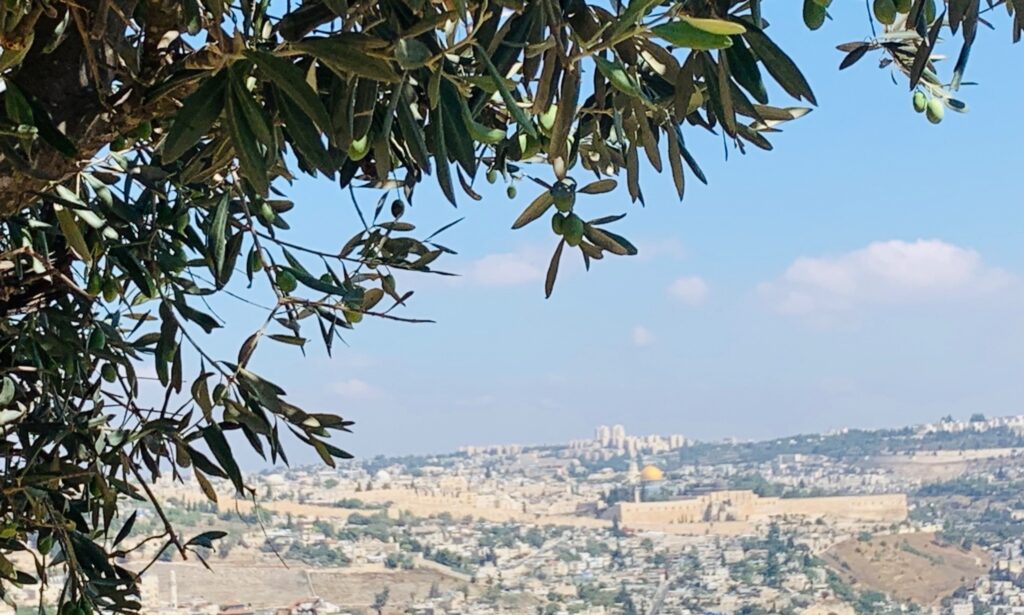
This particular day was filled with so many experiences that needed time to digest. Transitioning from exploring the historic stories within the walls steeped in history to witnessing individuals being denied the chance to lead ordinary lives is an experience that should remain in a person’s memory. All whilst surrounded by the beauty of their country – it felt like an unbearable juxtaposition.
Beginning the tour at Jabel Mukaber, the view of the land was nothing short of breathtaking. This was the mountain in which Omar Ibn Al Khattab stood and collected the keys for Al Aqsa. In the far distance shone the golden dome of the Dome of the Rock and surrounding it, homes and rich agriculture.
Gradually learning how to differentiate between a Palestinian home and homes that had been occupied was imperative to this experience. How can you visit a land and walk among those who are oppressed without knowing their reality?
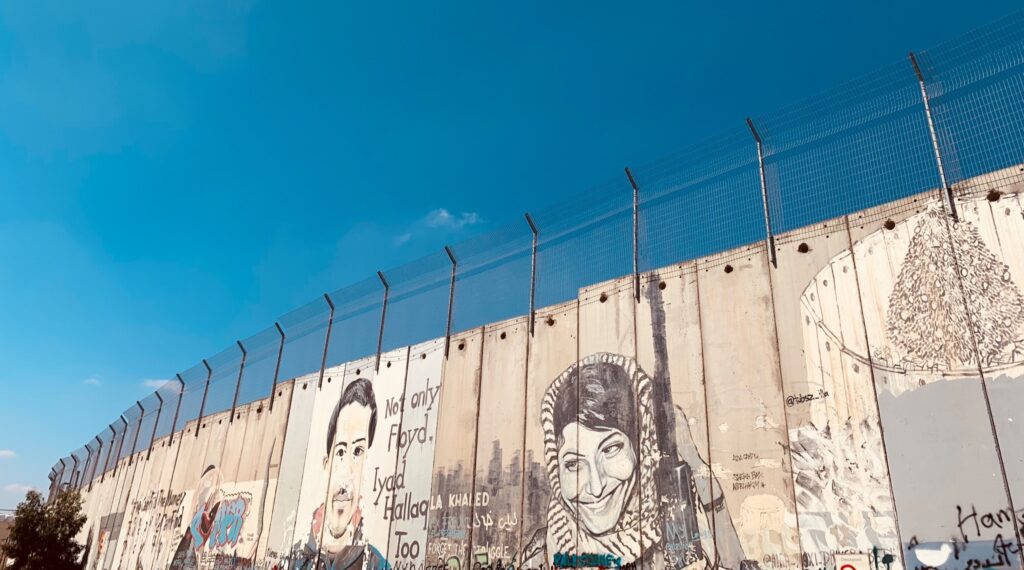
Entering the West Bank, we passed through highly secured and monitored checkpoints. Cars would stop for moments at a time to be searched and their drivers questioned. At one point, a guard boarded our coach and when I looked up from taking my passport out of my bag, I saw a sea of raised hands all holding a British passport. We learnt on our coach journey that only certain passport holders are even allowed into the country.
It’s difficult to articulate the feelings that came with these experiences, but it felt as though there was a narrative being pushed. And it was clear how this narrative wanted the Palestinians and any Muslim for that matter, to feel. And it made me ask myself repeatedly: why should we constantly feel on edge when entering an area occupied predominantly by our brothers and sisters?
We passed through Al Khaleel (commonly known as Hebron) and Ariha (also referred to as Jericho). We’d journeyed to pray in Masjid Ibrahim – learning how it eventually became shared by both Muslims and Jews. But upon arrival, we found we couldn’t enter due to a Jewish celebration taking place. I paid particular attention to this neighbourhood because of how quiet and uncomfortable it felt.
Before entering neighbourhoods of occupied Palestine, there were multiple signs that read: “This road leads to area A under the Palestinian Authority. The entrance for Israeli Citizens is forbidden, dangerous to your lives and is against the Israeli law.” And yet, we would still come across multiple homes that had been settled in in those areas. It felt like the most polite impolite act I had ever come across.
The Walled Off Hotel
Designed by the London artist Banksy, The Walled Off Hotel is located in Bethlehem, and looks directly out onto the separation wall. The hotel holds beautiful pieces of artwork done by Palestinian youth.
The images speak louder than any words could, and are moments I’d like to conclude this piece with:
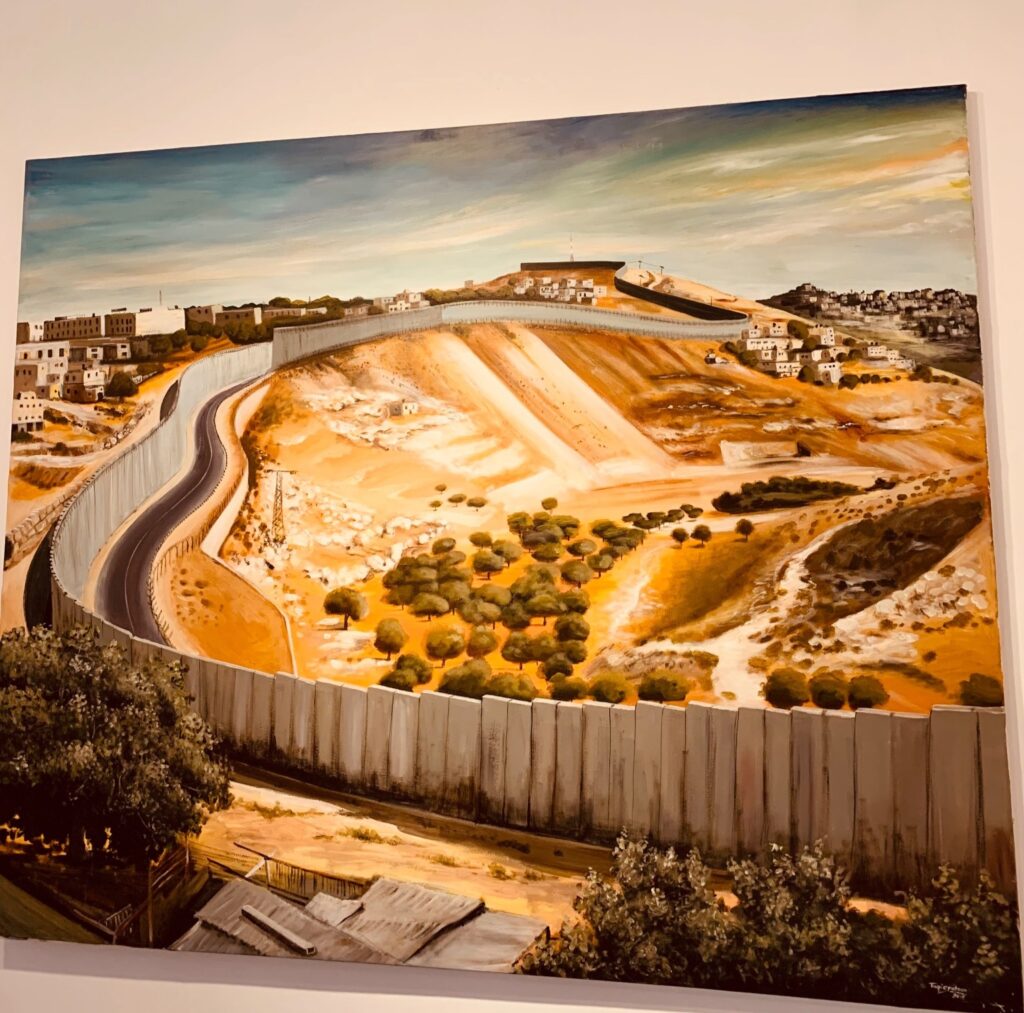
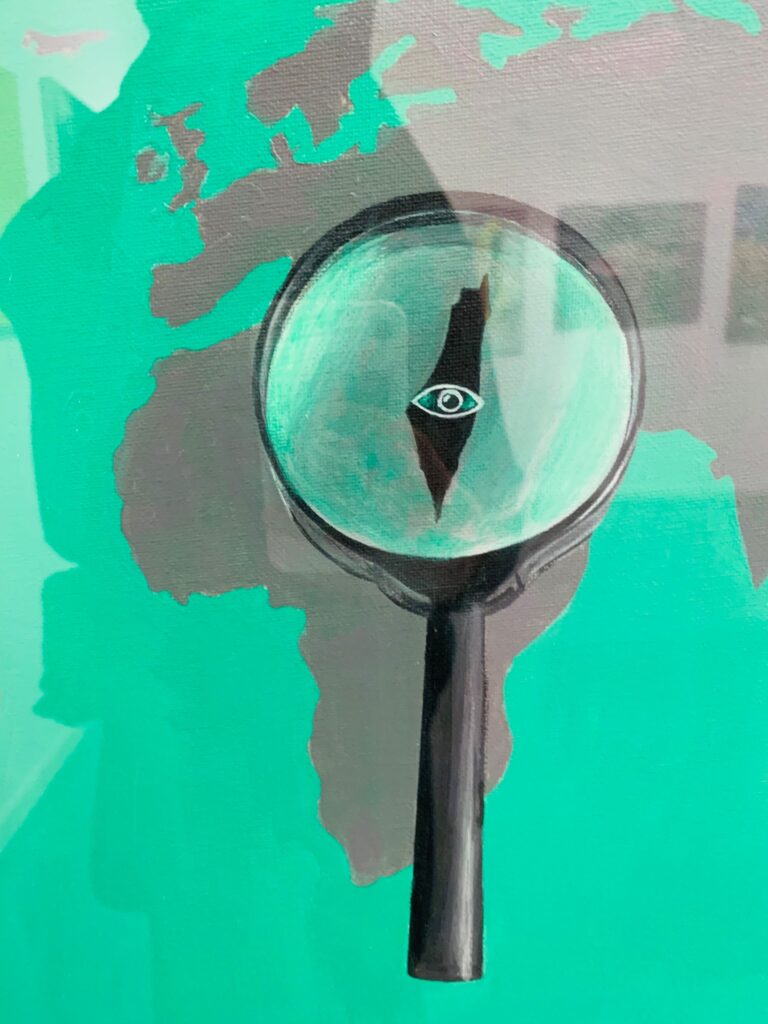
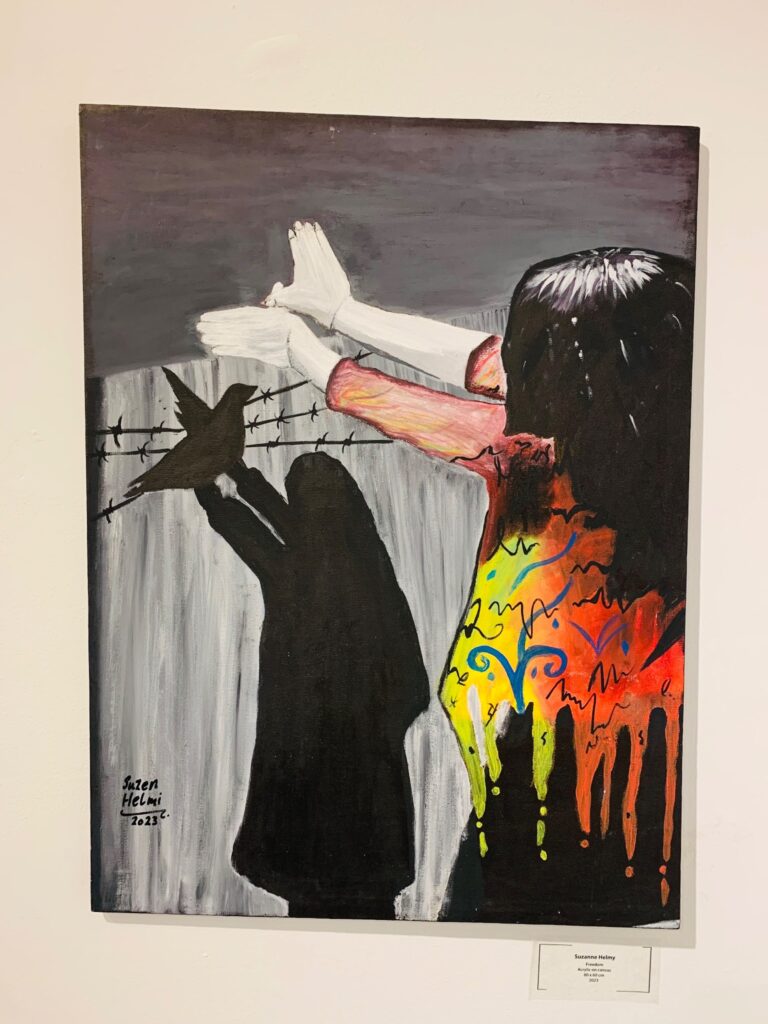

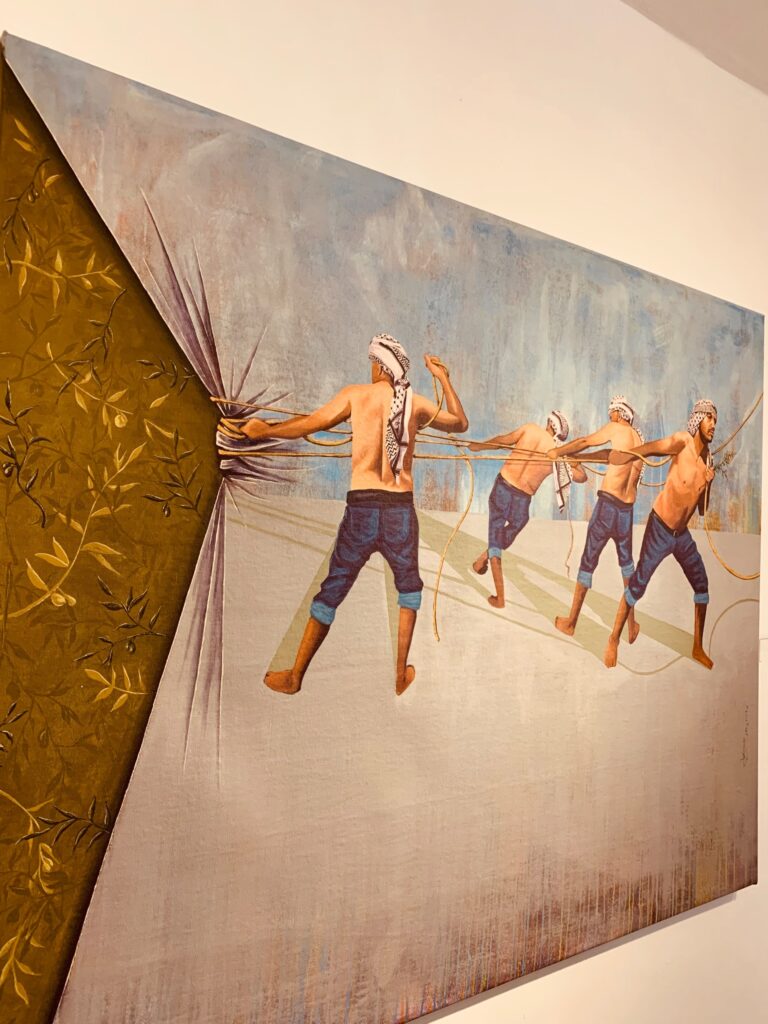
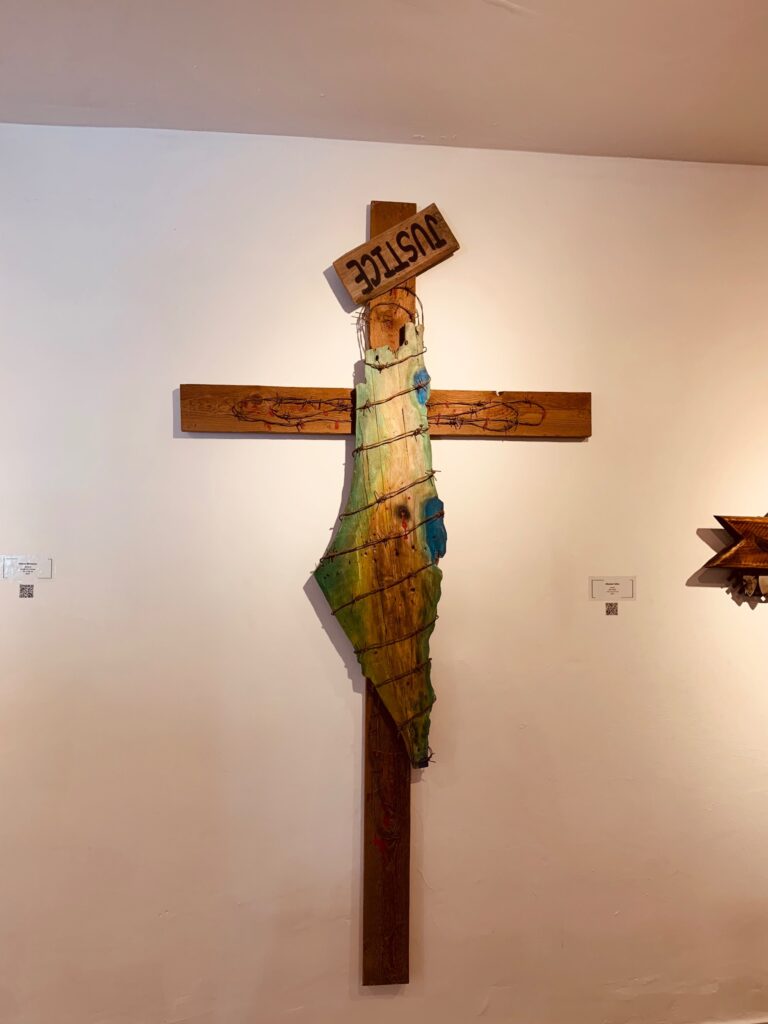
If this genocide doesn’t change us as people, what will? If finding it impossible to bury our heads in the sand during a time our brothers and sisters are being wiped out – doesn’t that mean something?
This was my experience of Palestine, its beauty, and only the tip of an iceberg of its reality. There’s no room for ignorance anymore.





